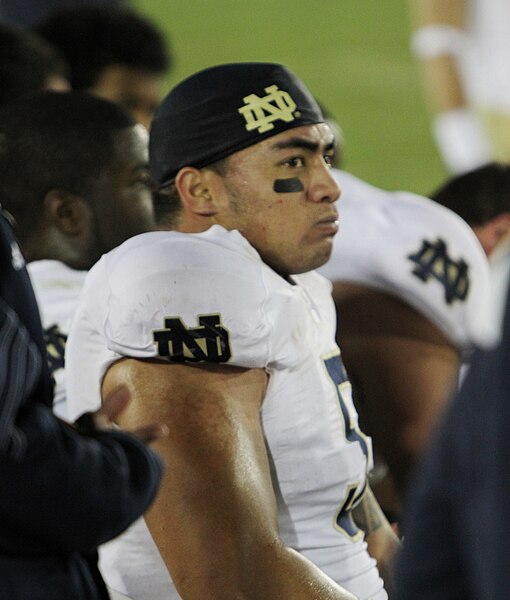Before Manti Te'o, "catfishing" was nothing more than an outdoor hobby. But when the popular sports blog Deadspin reported in January that the Notre Dame linebacker was the victim of a terrible online hoax, the term took on a brand new meaning.
Image may be NSFW.
Clik here to view.
"Catfishing" happens when someone uses the Internet, specifically social networking sites, to create a false identity in the pursuit of creating a digital relationship with the man or woman on the other side. In the case of Te'o, the stakes were raised with a high profile story concerning his girlfriend Lennay Kekua, who died of leukemia before Notre Dame played Alabama for the BCS National Championship. It was a tragedy which captivated the collective sporting community. There was just one problem — Lennay Kekua didn't exist.
In fact, Manti Te'o isn't the only athlete to be fooled by castfishing schemes. Indianpolis Colts punter Pat McAfee was nearly tricked by a fake online persona until realizing soon enough that it was all a sham. He comically admitted to the press that he didn't think he was famous enough for any groupies, which is how he became so suspicious to begin with.
Image may be NSFW.
Clik here to view.

"Catfishing" happens when someone uses the Internet, specifically social networking sites, to create a false identity in the pursuit of creating a digital relationship with the man or woman on the other side. In the case of Te'o, the stakes were raised with a high profile story concerning his girlfriend Lennay Kekua, who died of leukemia before Notre Dame played Alabama for the BCS National Championship. It was a tragedy which captivated the collective sporting community. There was just one problem — Lennay Kekua didn't exist.
Dude Looks Like a Lady
A man named Ronaiah Tuiasosopo was the man behind Kekua's profile the entire time. He created a name, found a picture, and crafted an entire story to create Lennay Kekua and fool Manti Te'o into a long distance relationship. The details leading to the eventual fallout are complex, but the aftermath was bad for Manti Te'o. He was humiliated in front of the whole world, and even his future in the NFL is in question.In fact, Manti Te'o isn't the only athlete to be fooled by castfishing schemes. Indianpolis Colts punter Pat McAfee was nearly tricked by a fake online persona until realizing soon enough that it was all a sham. He comically admitted to the press that he didn't think he was famous enough for any groupies, which is how he became so suspicious to begin with.
A Fish Out of Water
At its best, catfishing is an inconvenience. At its worst, it can be publicly embarrassing and psychologically damaging. TV blog www.direct.tv covers a few points to avoid falling victim to catfishing in your own life.- If the person contacting you uses Facebook or Twitter, how many friends and followers do they have? The higher, the better. But a low number should be a red flag when validating your new companion as a real person. How often do they post on their networks? Regular posts dating back a year or more means you're probably safe, but anything less should make you suspicious.
- Try to video chat. Almost every computer, smartphone and tablet nowadays comes with a camera capable of video chatting. Try and get a face-to-face conversation going with the person on the other side of the profile. If they're real, they'll say yes. But if they find excuses to avoid a camera, they could be hiding something.
- Try to meet, but only if it feels safe and comfortable. If you feel like the digital relationship has reached a point where you're ready to meet, try and do so. Like video chatting, a person with something to hide will likely avoid meeting in person at all costs.
- Use common sense and trust your gut. If something feels wrong, it probably is. Don't ignore any instincts that something is wrong. If you feel off-put about who you're talking to, ask for definitive proof of who they are before moving forward.
